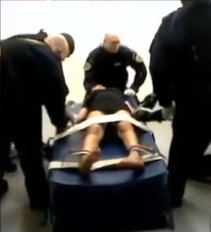Call us now:
On October 16th the 2nd DCA made it clear that if the police want your blood after a traffic crash, they need to get busy or have a good reason why they didn’t. (State v Harris 2D2023-1430) When can police take blood is a common question, and the more you know the more you can protect yourself.
Blood and DUI Basics – Rules for When Can Police Take Blood
To understand what’s going on in this case, a little background will be necessary. Following a traffic accident, especially one involving death, the police will typically begin conducting a traffic crash investigation. Based on some preliminary information they may begin a DUI investigation of some kind, typically involving a request to perform FSE’s (field sobriety exercises), and then proceed to make an arrest and then request a sample of breath or blood so they can attempt to confirm your BAC (Blood alcohol content). It is also important to note that following an important US Supreme Court case known as McNeely (Missouri v. McNeely, 569 U.S. 141, 148–49 (2013), for the police to obtain your blood they will need your free and voluntary consent, or a warrant. Once the Supreme Court weighed in on the question of when can police take blood there have been cases popping up amongst all the states clarifying the details about specific circumstances that apply, including Florida.

But what happens if the police are in the process of getting a warrant and something happens and they get delayed, or it’s impossible to do at the time (the process of getting a warrant involves writing an affidavit, finding a judge, and acquiring their approval)? Can police take blood then? Well if that happens the police and State can try to convince the Judge in the case against the Defendant that there was an excuse for the failure to get a warrant, or there was an excuse for some sort of delay. When you get down to specific facts and the chaos of random traffic events, when can police take blood gets a little more complicated.
When Can Police Take Blood Specifics – This Traffic Case with Warrantless Blood Draw
In this case, following a traffic crash involving death, a trooper ordered blood be drawn from the suspect before a warrant was obtained a full 2.5 hours after the crash. Then the trooper did get a warrant and drew blood, again, about 1.5 hours after that. Now the crucial thing to know is that the normal dissipation of alcohol is not a good enough emergency or special circumstance to justify the failure to get a warrant.
As the 2nd DCA noted in this case:
Moreover, in DUI cases the dissipation of blood alcohol levels alone is not a legally cognizable exigency. See McNeely, 569 U.S. 141 at 156. There must be more, as the Supreme Court explained in Mitchell v. Wisconsin, 588 U.S. 840, 854 (2019). There, it held that exigency exists only when blood alcohol evidence is dissipating and “some other factor creates pressing health, safety, or law enforcement needs that would take priority over a warrant application.”
Here there was evidence that the judge lived nearby, the police could have sought the warrant electronically or by telephone, and the judge was on call. Once the police did get a warrant application and submitted it, the judge returned it signed to the police 21 minutes after submission.
Protect Your Rights Against Illegal seizure of Your Blood – Can Police Take Blood is Important to You
The lower Court properly concluded that there was neither exigent circumstances to draw the blood without a warrant nor was there an inevitable discovery exception and stopped the State from using the illegal evidence seizure from being used. Never forget that the Constitution of the United States has protections for us all, and when the government wants to invade the sanctity of your body, they need to justify it in writing. We can all expect diligence and professionalism from our government, and that includes when they decide to accuse us of a crime. If you’d like to learn more, check out other posts, or learn more about the 4th Amendment on my motion to suppress page.
If you think evidence was illegally obtained in your case, or you need help with any criminal matter, contact Matt Landsman today.
